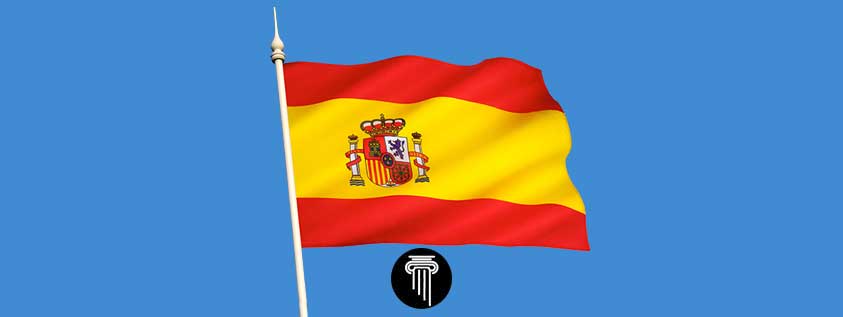5 Tax Mistakes freelancer Spain Should Not Make
As a freelancer in Spain, there are various tax mistakes you should avoid at all costs. This is due to the Spanish tax regime which is considered to be one of the most complicated tax systems in Europe. In this article, you will learn all you need to know to work according to the law.
Content
Being a freelancer in Spain
Freelancers in Spain are subject to the same tax system as self-employed workers, which includes income tax payments and social security contributions. Some of the common tax mistakes include incorrect reporting of your income on tax declaration forms, not keeping accurate records of expenses, and failing to pay taxes. For instance, the personal income tax is one of the most important taxes for freelancers in Spain that needs to be paid quarterly or annually depending on your income level.

What is your biggest problem concern as a freelancer?
Paying taxes is a vital part of freelancing, hence, it’s essential that you understand the tax system in Spain. So, if you want to make sure you are complying with the law, pay all the taxes owed, file annual tax returns and pay social security contributions.
However, even with the best of intentions, many freelancers make mistakes when it comes to taxes that can be costly and lead to penalties from the tax authority. To help you avoid making such errors, we’ve listed five of the most common ones:
1. Not understanding the taxation system
To become a fully compliant freelancer, you must have an understanding of the Spanish tax system. You will need to register with the local Tax Authority and submit annual and quarterly tax returns – all while adhering to the same rules and regulations that other self-employed workers must abide by. Register with the tax authorities in your area to ensure you are compliant with all the taxes and regulations.
2. Not paying social security payments
As a freelancer, it is your responsibility to pay social security contributions every month or quarter depending on your employment status. You can also benefit from state pension funds, as well as health care and sick leave allowances that are available to those who make their social security payments.
3. Not deducting expenses related to your work
Many freelancers in Spain don’t realize that they can deduct a range of costs from their annual or quarterly tax returns, such as rent, travel, and supplies. Furthermore, you may be able to claim a flat rate deduction of 50% of your income for the purpose of tax. Keep detailed records of all expenses related to your freelancing in order to take advantage of these deductions.
4. Not correctly calculating value-added tax
Usually, VAT payments are made quarterly, with a minimum rate of 21%. For those operating within the European Union (EU), intra-community operations may also be subject to Value Added Tax (VAT). Failure to correctly calculate and pay VAT could result in late payment fees or even fines from the tax authority.
5. Not registering as a freelancer
Many new freelancers don’t register as self-employed with the Spanish national insurance agency, meaning they are not legally allowed to do business in the country. It is important to obtain a tax identification number as soon as possible and register as a freelancer with the Spanish government. Taxpayers must register for taxes in Spanish if they are a freelancer. Once registered, all of your invoices will include 15 IRPF retentions on them. Essentially, your clients are paying your taxes for you and will submit them to the tax office. The income earned in one full tax year must be declared at once through an annual tax return.
What’s required to become a freelancer in Spain?
Whether you are an EU/EEA or Swiss citizen, or even a non-citizen of the European Union, there is one main factor to consider when becoming a freelancer in Spain.
If you’re from any of these countries, registering yourself as self-employed should be fairly straightforward and comes with similar requirements for Spanish citizens alike. However, there are steps needed to become a successful freelancer no matter where you come from.

EU/EEA and Swiss citizens
1. Get your NIE number
The first step for freelancers in Spain is to obtain a NIE number – which stands for ‘Número de Identidad de Extranjero’. This is your personal tax identification number and you will need it to register as self-employed and open a business bank account. Once you have your NIE, you can register as ‘autónomo’ with the Spanish Social Security office. For Spanish citizens, the Documento National de Identidad (DNI) serves as their identification number and fulfills the same purpose.
2. Register for income tax (IRPF) and VAT (IVA)
To become a freelancer in Spain, you must register for both income tax (IRPF) and Value Added Tax (IVA). The IRPF is the personal income tax that all individuals in Spain – regardless of whether they are self-employed or employed – must pay.
As a freelancer, your taxes must be paid quarterly with the Spanish Tax Agency. Paying taxes is an unavoidable part of owning a business, and you must be sure to cover any Value Added Tax (VAT) at 21%. In order to do that, registration with the tax agency/Agència Tributària/AEAT or Hacienda—is required. To complete this process, don’t forget these key components:
- Passport and a copy
- NIE number
- Empadronamiento (address registration).
3. State your economic activity
The tax authority requires you to provide the type of freelance work you will be performing and pay any relevant taxes accordingly. To do so, it is necessary for you to acquire your Modelo 036 or Modelo 037, a document that verifies your name, address and category of economic activity.
4. Register with social security
Upon registering with the tax authority, you must promptly register for Régimen Especial Para Trabajadores (RETA) within 30 days of your registration – even if you are yet to earn any income. Read everything that’s needed in order to accomplish this:
- Passport and a copy
- NIE number
- Empadronamiento (address registration)
- Filled out TA.0521 form declaring economic activity
- Bank details if you’d like to pay by direct debit
5. Obtain appropriate licenses
Freelancers in Spain may be mandated to acquire special licenses, particularly when they manage other people or if the work impacts others. For instance, those who open their business for public access must obtain a Licencia de Apertura – even if your residence is where you operate and receive customers.
6. Open a Spanish bank account
By opening a Spanish bank account, freelancers in Spain are able to make the process of getting paid and linking it to payments more efficient. Additionally, with this account set up, you have the added benefit of having your mandatory social security contributions automatically deducted each month.
Non-EU/EEA and Swiss citizens
1. Spanish freelance visa
Are you a non-EU/EEA or Swiss citizen? If so, you must apply for the Spanish Freelance Visa to legally live and work as an autónomo in Spain. This visa is valid for one year and renews every two years. In addition, the following items are required:
- 18 years and above
- A criminal record check certificate
- A medical certificate
- Proof of private medical insurance
- Proof of appropriate academic
- Proof of funds
- A filled Modelo EX-07 form
- Your passport and a copy
- A viable business plan
- Sufficient planned investment
2. Residence permit
You have to collect the relevant documentation to obtain a ‘Permiso de Residencia’. This document is necessary for all non-EU/EEA or Swiss citizens who plan on staying in Spain for more than three months and will be required when registering as self-employed with the tax authority. Register this within 30 days after arriving in Spain.
3. Additionally: Everything EU/EEA and Swiss citizens need as listed above.

Do freelancers pay taxes in Spain?
Yes, all self-employed workers must pay taxes in Spain. Freelancers must cover the costs of running their business as well as pay taxes on their income.
Unlike working for a company with an established salary, freelancing is all about providing services to one or multiple clients and receiving payment in return. After completing work requested by your client(s), you must invoice them for the job done, or receive regular payments as part of an arrangement between yourself and them. With this type of setup, you become your own boss and can even begin turning a profit right away.
As a freelancer, you are the CEO and employee of your own business and you need to manage marketing and customer service. That said, Spanish freelancers must remit quarterly IVA (VAT) returns in addition to personal income tax payments. Instead, employees pay their taxes directly from salary deductions each month.
A word from SublimeSpain
For a freelancer, it’s important to know all of the rules and regulations that need to be followed when it comes to taxes. As long as you understand how much to pay when to pay, and what deductions you can take advantage of, you will be able to run a successful freelance business in Spain. Doing all the necessary research to understand Spain’s tax system, as well as registering with the relevant tax authority and making payments on time are essential steps when it comes to being compliant and working legally in the country. By understanding and avoiding these mistakes, you will be able to ensure that you stay compliant with all of your taxes and focus on what matters most – running your business.
Disclaimer: Information on this page may be incomplete or outdated. Under no circumstances should the information listed be considered professional legal or financial advice. Furthermore, we highly recommend seeking guidance from a legal or financial expert if you lack extensive knowledge or experience dealing with any of the procedures outlined in these articles.

